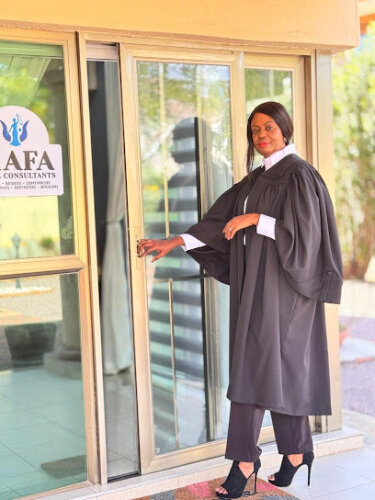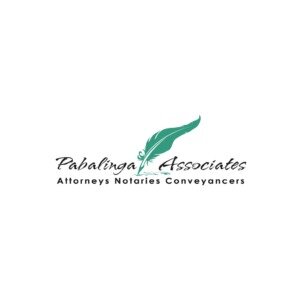Best Trusts Lawyers in Botswana
Share your needs with us, get contacted by law firms.
Free. Takes 2 min.
Or refine your search by selecting a city:
List of the best lawyers in Botswana
About Trusts Law in Botswana:
Trusts in Botswana are governed by the Trustees Act of 1974 and the Common Law. A trust is a legal arrangement where assets are held by a trustee for the benefit of one or more beneficiaries. Trusts can be used for various purposes such as asset protection, estate planning, and charitable giving.
Why You May Need a Lawyer:
You may need a lawyer to help you create a trust, draft trust documents, interpret trust provisions, handle trust administration, resolve disputes among trustees or beneficiaries, and ensure compliance with trust laws in Botswana.
Local Laws Overview:
In Botswana, trusts must have a trust deed that outlines the trust's purpose, beneficiaries, assets, and the duties of the trustee. The trustee must act in the best interests of the beneficiaries and must manage the trust prudently. Trusts in Botswana are subject to the oversight of the High Court.
Frequently Asked Questions:
1. What is a trust?
A trust is a legal arrangement where assets are held by a trustee for the benefit of one or more beneficiaries.
2. How do I create a trust in Botswana?
To create a trust in Botswana, you must draft a trust deed outlining the trust's purpose, beneficiaries, assets, and the duties of the trustee.
3. Who can be a trustee in Botswana?
Any individual or corporate entity can be a trustee in Botswana, but they must act in the best interests of the beneficiaries.
4. Can I change the terms of a trust in Botswana?
It may be possible to change the terms of a trust in Botswana, but this would require the consent of all parties involved or a court order.
5. What are the tax implications of a trust in Botswana?
Trusts in Botswana may be subject to income tax, capital gains tax, and stamp duty. It is advisable to consult with a tax advisor for specific advice.
Additional Resources:
The Law Society of Botswana and the Botswana High Court are valuable resources for individuals seeking legal advice on trusts in Botswana.
Next Steps:
If you need legal assistance with trusts in Botswana, consider consulting with a qualified trust lawyer who can provide guidance and support throughout the process.
Lawzana helps you find the best lawyers and law firms in Botswana through a curated and pre-screened list of qualified legal professionals. Our platform offers rankings and detailed profiles of attorneys and law firms, allowing you to compare based on practice areas, including Trusts, experience, and client feedback.
Each profile includes a description of the firm's areas of practice, client reviews, team members and partners, year of establishment, spoken languages, office locations, contact information, social media presence, and any published articles or resources. Most firms on our platform speak English and are experienced in both local and international legal matters.
Get a quote from top-rated law firms in Botswana — quickly, securely, and without unnecessary hassle.
Disclaimer:
The information provided on this page is for general informational purposes only and does not constitute legal advice. While we strive to ensure the accuracy and relevance of the content, legal information may change over time, and interpretations of the law can vary. You should always consult with a qualified legal professional for advice specific to your situation.
We disclaim all liability for actions taken or not taken based on the content of this page. If you believe any information is incorrect or outdated, please contact us, and we will review and update it where appropriate.
Browse trusts law firms by city in Botswana
Refine your search by selecting a city.













